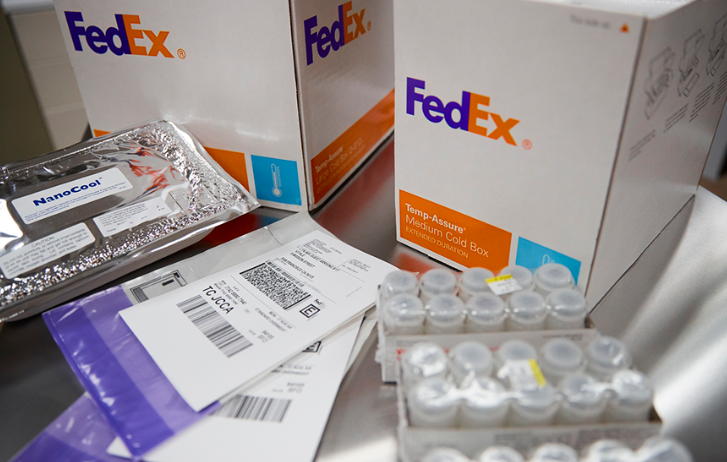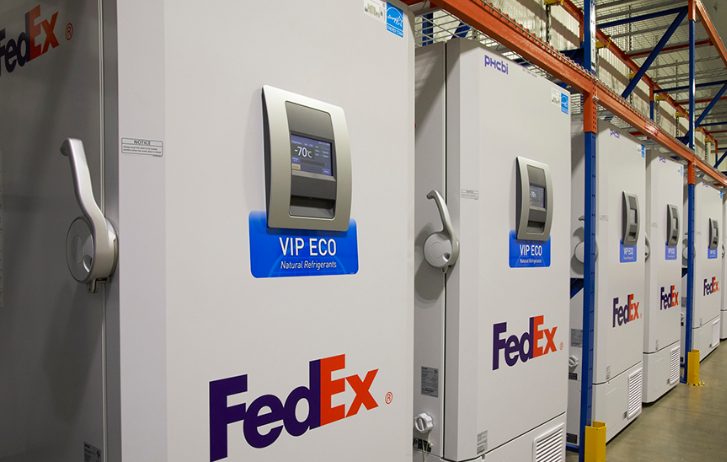
The Future Of Healthcare Supply Chains: Resilience, Innovation And Trust
By Kawal Preet | First published: April 22, 2022 Updated: November 12, 2025
In a post-pandemic world, resilience and reliability define the future of healthcare supply chains.
With Asia Pacific emerging as a global hub for innovation, logistics providers are transforming how vaccines, biologics, and medical devices move safely and efficiently across borders.
- Asia Pacific is driving global healthcare innovation with growing investment in biotech, cell and gene therapies, and vaccine production hubs across Singapore, South Korea, and Japan.
- Resilient healthcare supply chains depend on diversification, digital traceability, and strong collaboration between the public and private sectors.
- FedEx provides trusted healthcare logistics solutions with over 130 cold-chain facilities worldwide, advanced temperature-controlled packaging, and near-real-time visibility.
In the years since the COVID-19 pandemic, healthcare logistics has entered a new era of transformation. Instead of focusing on crisis response, businesses today are rethinking how to build a resilient and reliable healthcare supply chain – one that’s smarter, more agile, and ready for the next challenge.
Building a more connected healthcare supply chain
The COVID-19 pandemic exposed the fragility of global medical supply networks. Today, healthcare providers, manufacturers, and logistics companies are investing in resilience. Across Asia Pacific (APAC) – a region central to the global production of pharmaceuticals, medical devices, and vaccines – supply chain leaders are working to improve reliability and cost-efficiency through smarter planning, stronger infrastructure, and trusted healthcare logistics.
At the same time, new challenges have emerged: rising transportation costs, regulatory changes, and the need for greater visibility across every shipment. Securing medical supply chains in a post-pandemic world requires not just redundancy but diversification, where companies source materials and manufacture from multiple regions to avoid bottlenecks.
Medical supply chains are complex, highly internationalized networks, often built on components from many countries. Failures occur when supply cannot keep pace with demand, a risk seen during the pandemic’s disruptions to essential medicines and medical-device components. To address this, companies need greater supply chain visibility, digital traceability tools, and stronger collaboration between the public and private sectors to bolster reliability.
For logistics providers, this also means building predictive networks. In practice, that means sensor-enabled tracking, cold-chain readiness, contingency warehousing, and real-time data sharing with customers and regulators. By aligning these capabilities with a modern supply chain framework, logistics providers can reduce biomedical supply chain risk and support truly reliable healthcare logistics.
Smart logistics helps reduce cost and risk
Inflationary pressures have made inventory management more complex. Hospitals and clinics need to balance cost containment with patient safety, while pharmaceutical manufacturers must secure critical raw materials. Efficient logistics plays a crucial role in this balance by reducing biomedical supply chain risk and ensuring materials reach their destination quickly and safely.
Providers that rely solely on commercial airline capacity often face disruptions similar to those in other industries. However, logistics providers with their own global air network have greater control and flexibility. At FedEx, we have the necessary agility to respond to urgent needs for same-day or next-day delivery of essential medical supplies, including predictive tools to anticipate delays and manage reroutes where they’re needed.
FedEx also supports healthcare customers through contingent warehousing and temperature-controlled storage, helping them avoid stockouts during demand surges. Using sensor-based technology and near-real-time tracking, our network provides visibility across every stage of shipping, reducing reliance on costly inventory stockpiles.
APAC: The growth engine of medical logistics
APAC’s role in global healthcare production continues to expand. Countries like Singapore, South Korea, Japan, and India are emerging as major hubs for pharmaceuticals, biologics, medical devices, and clinical-trial operations. These industries demand not only manufacturing expertise but also advanced logistics solutions to move goods swiftly and safely across borders and end markets.
The APAC region is also undergoing a strategic shift. No longer just a manufacturing base, it’s increasingly positioning itself as a global frontrunner in biotech innovation. This means logistics players must be equipped to handle high volumes efficiently, while also being flexible, managing temperature- or condition-sensitive shipments, and navigating complex regulations.
To support this growth, FedEx has invested in specialized healthcare logistics infrastructure across the region. Our Life Science Centers in Singapore, South Korea, and Tokyo provide large-scale, temperature-controlled warehousing and distribution for vaccines, biologics, and diagnostic materials. Globally, we operate more than 130 cold-chain facilities to help businesses meet growing demand for pharmaceutical and clinical shipments.
Operations specialists at each Life Science Center coordinate warehousing, customs clearance, and last-mile delivery. By integrating these functions, we help minimize delays and strengthen end-to-end visibility – key for any biomedical supply chain strategy.
Advanced cold chain and clinical shipping solutions
Reliable logistics also means protecting sensitive healthcare materials throughout their journey. For healthcare shipments, temperature control is mission-critical. At FedEx, we offer a suite of cold-chain packaging options to meet the diverse needs of the medical and biopharma industries.
Our Active Containers use built-in systems that actively regulate the internal temperature, while our Passive Packaging Solutions rely on insulated materials and pre-conditioned coolants to maintain stability. For colder requirements, the FedEx Deep Frozen Shipping Solution uses dry vapor technology to maintain conditions between -150°C and -195°C, eliminating the need for dry ice or insulated boxes.
FedEx also offers purpose-built options such as the FedEx UN 3373 Pak – available across APAC for transporting Biological Substance, Category B shipments – and the FedEx Clinical Pak, used as an overwrap for exempt clinical and environmental test samples.
These solutions are supported by FedEx Clinical Care, our dedicated service that manages the end-to-end movement of clinical materials – from collection to storage and delivery – ensuring integrity throughout the journey. With these capabilities, businesses have the flexibility to ship sensitive healthcare materials safely and securely, regardless of distance or destination.
Using data and technology to strengthen supply chains
As healthcare logistics becomes increasingly complex, digital visibility is playing a central role in ensuring supply chain reliability. Solutions like FedEx Surround use near-real-time data and artificial intelligence to monitor shipment conditions and predict potential delays. This helps prevent spoilage of sensitive materials and helps reduce waste, contributing to improved patient outcomes.
By combining predictive insights with a flexible global network, FedEx helps businesses make faster, data-driven decisions. From managing cold-chain shipments to supporting clinical trials, these innovations are redefining what reliable logistics means for the healthcare industry.
Building the future of reliable healthcare logistics
The global healthcare supply chain is evolving beyond pandemic recovery. Businesses are prioritizing flexibility, visibility, and sustainability to build networks that can adapt to change. Across APAC and beyond, collaboration with experienced logistics providers remains key to ensuring that life-saving materials reach those who need them – on time and in optimal condition.
SHARE THIS STORY
- 85% Of APAC Businesses Plan To Expand Into Europe, According To New FedEx Report
- Generative AI: A New Frontier
- How To Ship A Giant Panda
- The Rise Of Intra-Asia Trade: Opportunities In The China-Southeast Asia Corridor
- Where Do Old Planes Go When They Retire?
- What’s So Dangerous About Coconuts? Your Guide To Dangerous Goods Logistics
Sign up now and save on your shipping rates!
Sign up now and earn discounts by shipping instantly with FedEx Ship ManagerTM at fedex.com.
Recommended For You

How Technology Is Shaping The Future Of Healthcare Logistics
From real-time data to predictive analytics, our digital technologies streamline the process of moving medical supplies and healthcare products.
Read More
The Next-Gen Sensors Transforming Healthcare Logistics
Healthcare shipments require delicate handling. The right sensor technology ensures products are transported safely.
Read More
Why Pandemic Readiness Starts With Healthcare Logistics Innovation
Outbreaks like COVID require billions of vaccines to be shipped globally. How can logistics firms innovate to fight future pandemics more effectively?
Read More

